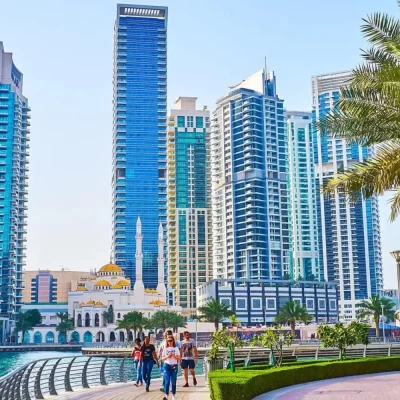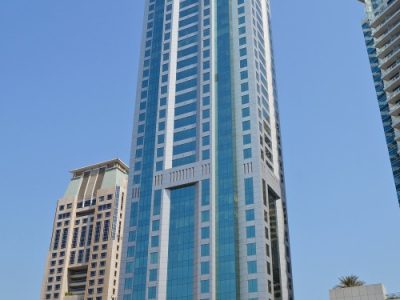Since the discovery of oil back in 1950’s, many people have arrived, settled and living in UAE. And likewise, they have amassed wealth and assets within UAE too. But many expatriates living in the UAE are also still unaware that in the absence of a Will, recognized by the UAE legal system, the process of transferring their assets after death can be time-consuming, costly and fraught with legal complexity.
Wills and other matters relating to personal affairs are generally governed in the UAE by Federal Law 28 of 2005, known as the Law of Personal Status, which is based on Islamic Law.
In order to accommodate those residents of the UAE who ascribe to different religions, the Law of Personal Status permits a non-Muslim expatriate living in the UAE to elect to apply the law of his or her country to matters of personal affairs.
“Inheritance shall be governed by the law of the testator at the time of his death”– Article 17 of the UAE Civil Code”
If an expatriate dies without Writing a Will, Federal Law No. 5 of 1985, concerning the issuance of Civil Transactions Law of the UAE (the “Civil Code”), and Federal Law No. 28 of 2005 regarding the UAE Personal Status Law (the “Personal Status Law”) guide the local Courts on the distribution of assets, only where it is not contrary to public policy. In some cases, it is possible that the Courts will apply principles of Shariah law to the estate of a non-Muslim and therefore mandatory rules of division between certain members of the deceased’s family will apply.
As a practical matter, access to the assets of the deceased individual is restricted. Assets cannot be transferred or be dealt with in any manner without direction from the local Court. In some circumstances, this can give rise to delays and financial complications at a critical time.
Many expatriates fail to put measures in place to protect their families and their assets. Even where investments are offshore in foreign jurisdictions, individuals fail to consider what would happen to infant children, UAE bank accounts, their freehold properties or shares in this country? Serious complications can occur when infant children are left behind and no guardianship arrangement recognized in this country has been put in place. In default, Sharia Inheritance rules would apply to property and it would be at the discretion of a local judge to choose the child’s guardian.
BACKGROUND OF LEGAL WILL
A ‘will’ is a legal document which permits a person (testator), to make decisions on how his/her property will be managed and distributed after death. A will can be created by a person at any stage of life. And a will shall be enforceable only after the death of the testator. Through “will” a testator can transfer his/her property to any person he/she likes, such as Faithful servant, handicapped children, widowed daughter and they are termed as ‘legatee’ and such person(s) shall be the beneficiary to the legacy as per law.
If a person does not leave a will, or the will is declared invalid, the person will have died intestate (not having made a will before one dies. Because of the importance of a will, the law requires it to have certain elements to be valid. Apart from these elements, a will may be ruled invalid if the testator made the will may be ruled invalid if the testator made the will as the result of undue influence, fraud, mistake etc. It is very much important to write a will because it safeguards a person’s right to select an individual to serve as guardian to raise his/her young children in the event of his/her death.
Essential requirements of writing a will:
A will must be created by a person, being major, and of sound mind. A will must be in writing and signed by the testator (except privileged will by soldier/airman engaged in warfare or a mariner being at sea). The signature must be placed in such a way that it shall appear that it was intended to give effect to the instrument as a Will.
- The Will should be attested by two or more witness in the presence of the testator. The attesting witnesses need not know the contents of the Will. They are only witnesses to the signature or mark of the testator.
- The attesting witness and his/her spouse must not be beneficiary under the ill otherwise the bequest (the act of gifting money or property in a will) in their favour would be invalid. However, the validity of other bequests under the will not be affected.
- It takes effect after the death of the testator.
- Will is revocable during the lifetime of the testator.
- There is no particular form for will by law. The language should be as simple as possible and understandable even by a layman.
- A Will can be made on plain paper (need not to be on a stamp paper)
- Registration of Will is not compulsory, though it is desirable.
Fundamentals for Writing a valid will:
- Testamentary capacity and sound disposing mind
- Knowledge of contents
- Free from undue influence/fraud/coercion
- Voluntary act
LEGATEE
Any person can be a legatee (beneficiary by the Will) including a minor or a lunatic. However, a bequest to a person not in existence at the time of testator’s death is void (This happens when the legatee dies before the testator). A minor can bequeath property through executor/trustees until the time of attaining majority.
REGISTRATION OF WILL
Registering a will shall avoid the pre-set inheritance formulae – i.e. what is known as “forced heirship” – of Sharia Law potentially being applied during “Probate”. “Forced heirship” is a form of testate partible inheritance whereby the estate of a deceased is separated into an indefeasible portion, the forced estate, passing to the deceased’s next-of-kin, and a discretionary portion, or free estate, to be freely disposed of by will.
“Probate” generally describes the legal shenanigans that ensue after somebody has died. As a process, Probate aims to sort out all the legalities in one go, and usually won’t let any assets at all be accessed until every last detail of all asset is sorted out: who gets what in what country according to which law. Probate in the UAE has been dramatically streamlined with the launch of the Wills & Probate Registry last year and now, with the launch of the Property Will Portal, made even easier for expats to put their minds at rest over their legal situation if they die in the UAE.
“Your Property Will represents an extremely valuable and important legal document and you are strongly advised to consider taking legal advice in its preparation and indeed any Will to be registered at the WPR” – DIFC
One can register a Will with Dubai International Financial Centre’s Wills and Probate Registry which was launched on May 1, 2015. Wills and Probate Registry allows non-Muslims to register their will, which allows them to transfer their assets as they wish upon their death. However, before the new inheritance law enforcement, judges at the court of the first instance would apply Sharia to nonMuslims in case of death, since courts did not recognize wills from outside the country.
The new law has shortened the time frame needed to settle the distribution of assets and wealth of a deceased expatriate to a few months. It also decreased the amount of money paid to settle the inheritance. Currently, the cost of the registration of a Will at the Dubai Court is Dh2,110 (not including Arabic translation fees). The Dubai International Financial Centre (DIFC) shall charge Dh10,000 and Dh15,000 for two mirror wills for spouses.
A Will specifically for guardianship shall cost Dh5,000, and the cost for two mirror wills for two parents shall cost Dh7,500.
LEGAL ADVICE
Registration of Wills isn’t the only step which must be considered important.Professional advice is very relevant for the same. The coming of the Wills and Probate Registry has served to underline the need for expats to get their Wills sorted out professionally and will help make that process easier. The new registration process makes it critical to have a professional look at which a person’s assets are currently covered in any Will they have, and which are not. This must be kept in mind that Wills registered with the Wills & Probate Registry govern Dubai assets (and other issues such as guardianship) only.
To draft a new Will and amend/create another Will to cover assets outside of Dubai, a person definitely needs to get a solicitor involved. But one mustn’t lose sight of why they’re getting a Will in the first place. It’s about the money, right? An expat wants his/her solicitor to be working with their financial adviser to ensure that the Will itself reflects their broader financial strategy. And let’s not forget about sorting out a person’s exposure to Inheritance Tax which, for many expats, is the most important thing about their Will by far. A full-service financial provider would provide both the legal and financial assistance in one integrated package.
PROPERTY TYPE
All properties, movable or immovable, of which the testator is an owner and which are transferable can be disposed of by a Will. A property which is not legally transferable cannot be bequeathed. It means a person cannot write a Will on the property which is legally not transferable.
Indian Laws of Wills and Inheritance
As per the Hindu Succession Act, 1956, Hindus, Buddhist, Sikh or Jains can execute a will.
The Indian Succession Act, 1925 consists of part VI The law of Will is contained in part VI of the Indian Succession Act, 1925 and Christians, Parsis, and the Jews are governed by this.
Wills made by the Muslims are governed by the Muhammadan Law which is basically governed by their religious texts. The inheritance laws for Sunnis are different from those of Shias.
INHERITANCE COURT PROCEDURE IN DUBAI, UAE
For non-Muslim expatriates who don’t have a Will, there is a likelihood that Sharia law or forced rules on inheritors will apply. The court may also decide on who takes care of the surviving children upon the untimely death of the parent/s. If the expatriate has assets outside the UAE, he/she could lose a huge proportion of their inheritance to excessive taxes.
If a non-expatriate Muslim in the UAE has assets in the country and abroad, it is advisable to get an international Will or a similar document from their home country. However, a Muslim can write a Will in which they can give out only one-third of their property to a non-family member, including charity organizations and less fortunate.
Q&A
1. The spouse of a Muslim woman died two months ago, and the deceased is survived by his parents, wife and two sons in Dubai. The wife questioned as to who should be the rightful heir her husband’s legacy and what is the court procedure and duration? Are her husband’s parents entitled to inherit from the deceased’s fortune?
A: The questioner shall ask the Sharia Court to issue a Decree of Distribution, as the questioner shall provide two Muslim witnesses before the court, who are required to be aware of the deceased person and his family members so as to explain to the Sharia Court who the deceased’s relatives are. Therefore, the court will issue a Doctrinal Certificate within two days from the date of application in which it will state the rightful heirs of the deceased. As for the question on the deceased parents’ right of legacy, in accordance with the Islamic Sharia, the deceased’s parents inherit along with the questioner and her two sons.
2. Can a surviving spouse access the joint bank account?
A surviving spouse will not have immediate access to money in bank accounts in the UAE, or even bank accounts held jointly in the names of both spouses. In the absence of a registered Will, these accounts will remain frozen until instructions are received from a UAE Court and all the deceased’s debts in the UAE (even including parking fines) are paid. The assets will in due course, be distributed by the Courts in accordance with Sharia Law and this could potentially take weeks or even months. Under Sharia rules, the bulk of assets belonging to the husband may pass to certain family members, with the wife only taking a portion of the estate.
3. Who will have interim and eventual guardianship of infant children?
Article 142 of the Personal Status Law, defines custody as the upkeep and taking care of the child, (which is usually granted to the mother of the child) without interfering with the right of the guardian of the child. Guardianship is predominantly awarded to the father of the child since he is responsible for providing for the child financially, morally and physically.
Under Article 156 of the Personal Status Law a women’s custody of the children terminates upon a male child reaching the age of eleven and a female child turning thirteen unless the Court decides to extend this period in the best interests of the child.
If a father of an infant resident in the UAE dies, under Sharia law the closest male relative on the father’s side of the family is usually appointed as guardian of any infant children.
The mother of the children would retain custody, subject to conditions such as her not remarrying. If a wife was to die in the UAE, then the husband would remain the guardian and custodian of any minor children. This would be subject to him having a suitable woman living in his home to care for the child (such as a female relative).
In the absence of a registered Will or specific instructions appointing interim guardians for minor children, the UAE local authorities would have to intervene and take care of the minors, until such time as the Court’s approval of a suitable guardian.
4. Will Sharia inheritance rules apply to all or part of the UAE assets?
Inheritance issues for Muslims are dealt with in accordance with Sharia, whereas for non-Muslims, the law of the deceased’s nationality can be applied if a Will is made formally. The UAE Civil Code stipulates that the law of the home country of a non-Muslim can be applied to matters of inheritance as defined by Article 17 (1), which states “inheritance shall be governed by the law of the deceased at the time of his death”. However where a Will refers to the disposal of real estate in the UAE, then Article 17 (5) states that UAE law “shall apply to wills made by aliens disposing of their real property located in the state”. This is subject to an arguable exception in the case of freehold property; at present, the Dubai Courts, at least, are treating freehold property as an exception to the property can be bequeathed by a non-Muslim expatriate, under their Will.
Furthermore, Article 1(2) of the Law of Personal Status allows non-Muslim expatriates, with assets in the UAE to make a Will under the law of their home country, to govern succession to his or her UAE estate instead of Sharia-based rules. However, the Will must be proved in the formal legal fashion before the Inheritance Court, a process greatly expedited if the expatriate has previously had the Will translated into Arabic and notarised here in the UAE.
Even though the Personal Status Law provides non-Muslim expatriates with the right to request the UAE Court for the application of their home country law, the Personal Status Law does not however expressly amend the UAE Civil Code. This leads to potential uncertainty as to whether or not a non-Muslim’s Will would be subject to Sharia law and not according to their personal wishes, as per their home country law.
5. How can assets and family be protected?
In May 2015, the DIFC Wills and Probate Registry introduced a new set avenue for succession and inheritance matters for non-Muslims holding assets in Dubai, backed by protocols concluded with other public authorities in Dubai.
The new rules shall create legal certainty for the inheritance of an individual’s assets after death and the appointment of guardians for their children. This not only allows individuals to have the testamentary freedom to dispose of their assets as they wish, it also provides peace of mind that an individual’s estate will be distributed according to their wishes.
The Registry provides a simple and efficient mechanism for non-Muslims to pass on their estates, subject to a formal Will registration process which functions as an opt-in mechanism. All probate grants are issued by judges of the DIFC Court.
ADMINISTERING ASSETS – ONLINE & PHYSICAL
In order to ensure all of an individual’s assets, accounts and information are administered according to their wishes, considering the following:
• Doing an inventory of all their assets, including bank accounts, investments, emergency funds, including digital accounts that they’d like to be sorted out before death.
• Individuals must consider writing a will to spell out the disbursement of all their valuable possessions. In the absence of a will, the Shariah Law will determine who gets to keep what upon death. The UAE is home to a number of will writers and lawyers that can assist persons to write a will. One has to ensure that the company offering will-related services has the necessary credentials, including a lawyer qualified in family law. It is also advised that one should not write a Will only to save money.
• An Executor must be chosen carefully. A person may appoint a corporate body (bank/solicitor) or nominate younger people and more than one or two as executors, to ensure they are likely to outlive such individual and execute their wishes. “Where the executors are corporate bodies, they are likely to outlive us. Where executors are family members or friends, it is conceivable that they might die before an individual do, so it is advisable to nominate younger people and more than one or two as executors.
• Have the Will translated into Arabic, attested in the expat’s home country and ratified by the UAE embassy in their home country before submission to the UAE court.
“Usually, people will not bother to take these actions because they may find different rules apply and translation to other languages if they move country. Often, wills are written but the spouse will obtain translations, among others, following the death” – Steve Gregory (Managing partner at Holborn Assets)
• If a person has an active life online and such person maintains important digital accounts such as ebay or PayPal, which they think their family should have access to when they die, they must make a list of all the passwords and pass the information to a trusted executor. Regular back-ups must be created of all data, both those stored local and those online. Detailed document with instructions should be created on how to access all of the digital data and backups. Appointing a designated digital executor to provide any necessary technical support is advised.
• It doesn’t necessarily mean that an individual has to leave the passwords of all their social networking and email accounts to an outsider or executor. One might want to keep some of their digital accounts hidden for eternity. More and more people have a digital cyber world to take care of and they may wish to have such things deleted immediately after their death. Web-based photo libraries, Facebook profiles, Twitter accounts and personal documents may be things that the deceased does not want to be found at all. Social networking websites such as Facebook allows accounts to be memorialized or deleted by an immediate family member, while Twitter will remove an account if they receive a death certificate and provide all archived tweets from the user to the executor of the estate.
COURT OF CASSATION
In a particular incident, a widow of recently deceased Indian national filed a case in her personal capacity as the guardian of their only son. Upon the death of her husband, the deceased’s mother obtained a division of the husband’s assets pursuant to Islamic Law which gave the mother one-sixth, the wife one-eighth and the son the remainder of the assets. The wife filed the case to dismiss this division of the assets and to give the entire estate to the son. In her claim, the wife relied on a will properly be executed by her husband who gave all of his assets to his son upon his death and requested the court to enforce the will in accordance with the laws of India as her husband was a Hindu and not a Muslim.
The Court of Cassation ruled that it was erroneous for the Court of First Instance and the Court of Appeal to characterize the claim as a claim to amend the previously issued division of the estate’s assets. The Court pointed out that claim was for the enforcement of a will not amend the division of assets as the lower courts characterized it. Since the lower courts’ decisions did not evaluate the claim correctly, they should be overruled.
The Court further clarified that in the application of the husband’s will, the will should not be affected by the rules of the Law of Personal Status which state that a testator may not bequeath property to an heir. Under this rule, which is applicable to UAE Nationals and Muslim expats, a testator may not bequeath property to any of his heirs such as a son or a daughter except with the consent of the other heirs. The Court reasoned that a will’s purpose is to pass property from one person to another and if these persons are not UAE nationals and they are not Muslims then the law they have chosen for themselves to govern their relationship shall apply to them.
CONCLUSION
Non-Muslim expatriates in the UAE may choose to have the law of their country of origin as the chosen applicable law in their will as long as their heirs are also not UAE nations and not Muslim. If the will has a chosen applicable law and it is the law of the country of the origin of the testator, the court will respect that law and apply it except in cases where it is contrary to public policy to do so. As the court clarified, a different division of assets, such as equal inheritance for all children, would not be invalidated for violating public policy.
It is critical to note that the court’s enforcement of a will in accordance with foreign law is an exception and it is subject to strict procedural steps which must be followed otherwise the court will return to the default position of applying UAE law.
Role of Legal Maxims in creation and registering a Will
As per the guidelines are given by the DIFC, one must definitely seek legal assistance for the making of a will. A will represent the property value and every other personal interest of the person who is willing to create such will. A strong legal advice can also save a person from making mistakes which might create trouble at the later stage after the death of the testator.






